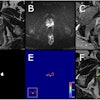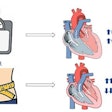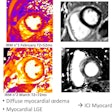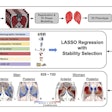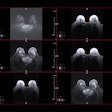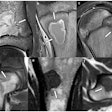Dear MRI Insider,
MRI has proved to be of great value in supplying clinical information about patients with complications from breast implants, and the same is now happening with penile implants.
Because of the modality's high sensitivity for determining abnormalities, it is particularly helpful for evaluating cases of painful penile prostheses and is superior to physical examinations, say prize-winning researchers from a leading university hospital in London. Get the story here.
Contrast-induced nephropathy has been overestimated, according to radiologists from Denmark. They constructed a study of fluctuations in estimated glomerular filtration rates in relation to contrast-enhanced MRI and CT compared with outpatient control groups. To read their findings, click here.
Another group of Danish researchers has found that when it comes to standard MR attenuation correction for whole-body PET/MRI oncology scans, users must account for bone attenuation to eliminate bias in tracer uptake of bony and soft-tissue lesions. Learn more here.
Meanwhile, an intriguing study was published on 16 April in Neurology. MRI researchers from the Netherlands, the U.S., and Iceland found that people with two or more symptoms of apathy had 1.4% less gray-matter volume and 1.6% less white-matter volume than individuals with fewer than two symptoms. The results suggest older adults with bouts of apathy may have smaller volumes of gray and white matter in areas of the brain associated with learning, memory, and internal communication. Click here to find out more.
Also in the Netherlands, staff at the University Medical Center in Utrecht have begun installation of what is thought to be the world's first high-field MRI-guided radiation therapy system. For the details, click here.
This letter features only a small selection of the many articles posted in the MRI Digital Community. Check out the rest of the full list below this message.



